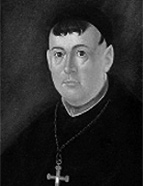

Shortly after obtaining his doctorate, he was awarded a gold medal by the Academia de Ciências de Lisboa [Lisbon Academy of Sciences] for the literary quality of one of his first history studies: "Comparison of the history of João de Castro by Jacinto Freire de Andrade and the life of Paulo de Lima by Diogo do Couto". In 1794, he was admitted as a member of the Academy and, in 1838, he was elected vice-president. On 22 December 1836, he became an Honorary Member of the Academia de Belas Artes [Academy of Fine Arts]. This work was the result of a "challenge" issued by the Academy of Sciences in its programme of 17 January 1792 for the year 1794: "To compare the History of D. João de Castro, by Jacinto Freire de Andrade, and the Life of D. Paulo de Lima, by Diogo do Couto, both in terms of the strengths or vices of the language and style, and in terms of the strengths and vices of both as writers of history" (Saraiva, tom. X, p. 3). The written output of Friar Francisco de S. Luís is enormous. His texts were collected in the Obras Completas [Complete Works], which was published under the patronage of the government itself. The person in charge of the edition was António Correia Caldeira, Cardinal Saraiva's nephew, who had inherited his uncle's documentation and decided to publish the texts that had already been published previously, namely by the Academy of Sciences, as well as many others that were unpublished. The ten volumes were printed by the Imprensa Nacional between 1872 and 1883, with an introduction by the Marquis of Resende. The fields of study he deals with are essentially history, literature and linguistics, but even in the latter two he makes considerable use of analysing the past in order to put forward his points of view. However, there are also several texts related to the contemporary national situation of the Benedictine religious community. In the brief introduction he wrote for the Obras Completas the Marquis of Resende draws attention to Saraiva's encyclopaedic knowledge and mentions various texts that he wrote relating to the times in which he lived, namely a draft Constitution, written in 1821, which was to be offered to Prince Pedro, the future King Pedro IV, if he returned before the foundations of the Constitution were discussed in the courts. Still according to the Marquis of Resende, this same text was eventually offered to King Pedro and served as the basis for the Constitutional Charter, granted by the monarch during his very short reign in 1826.
This work is financed by national funds through FCT - Foundation for Science and Technology, I.P, in the scope of the projects UIDB/04311/2020 and UIDP/04311/2020.
